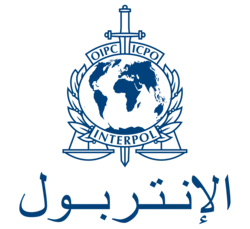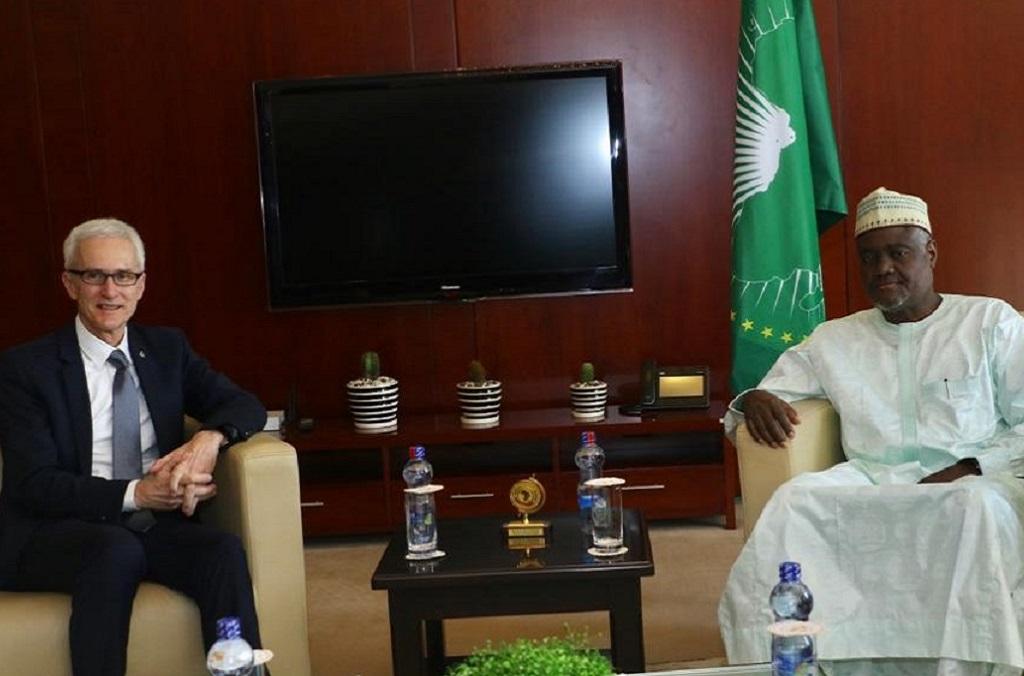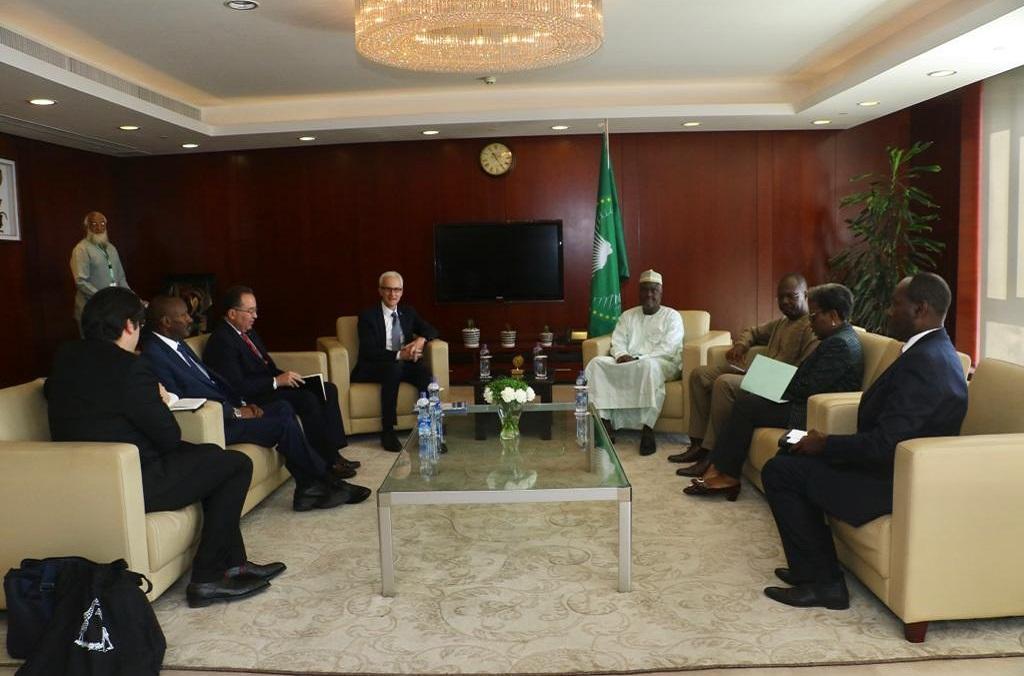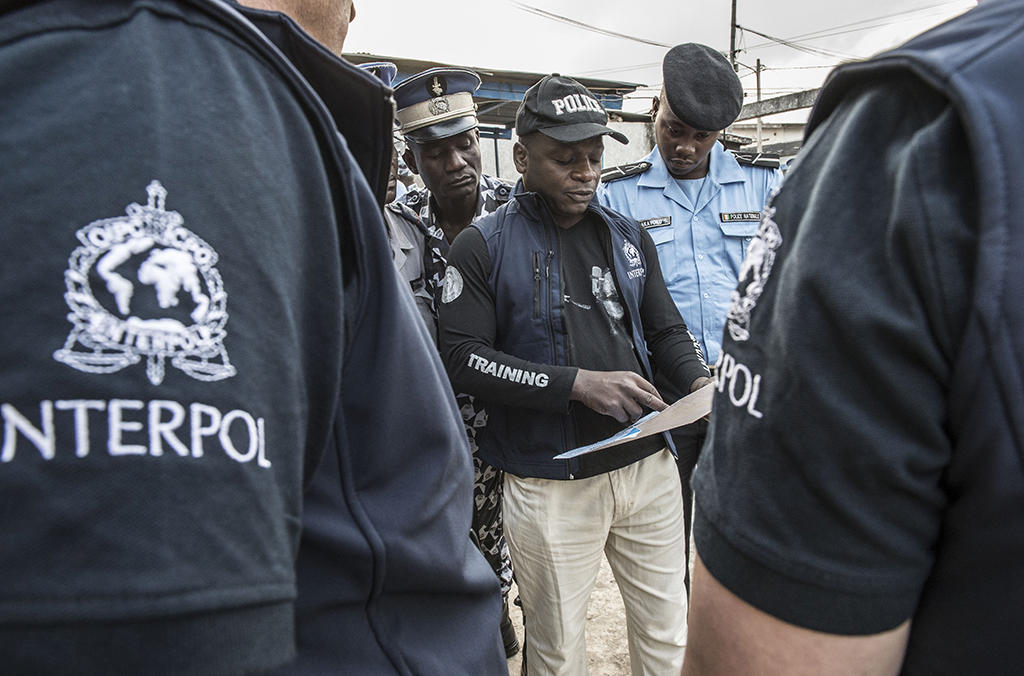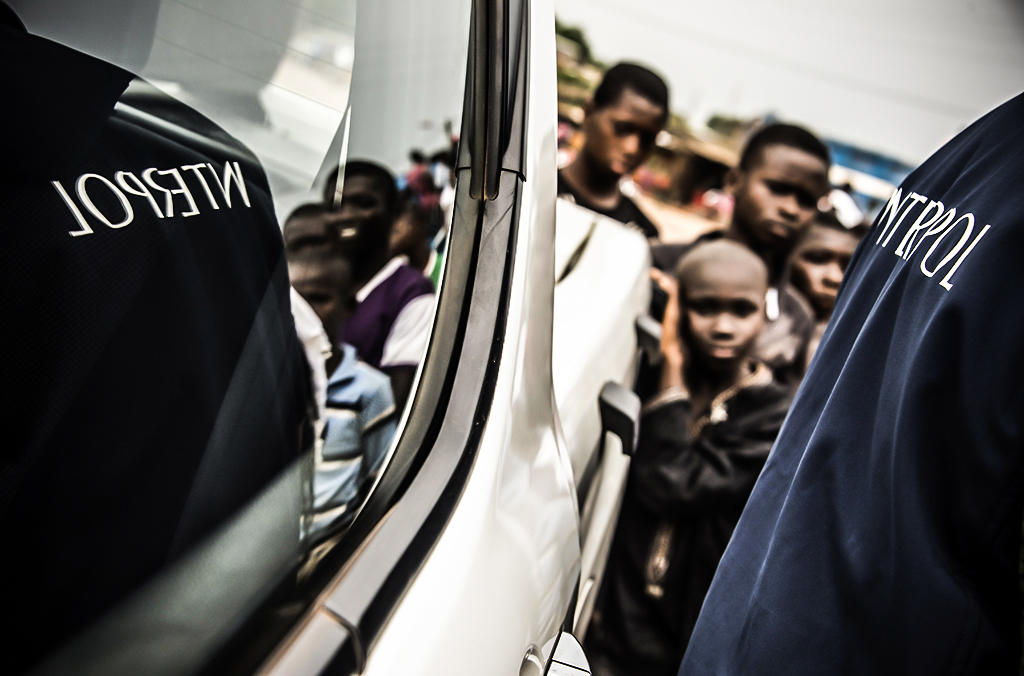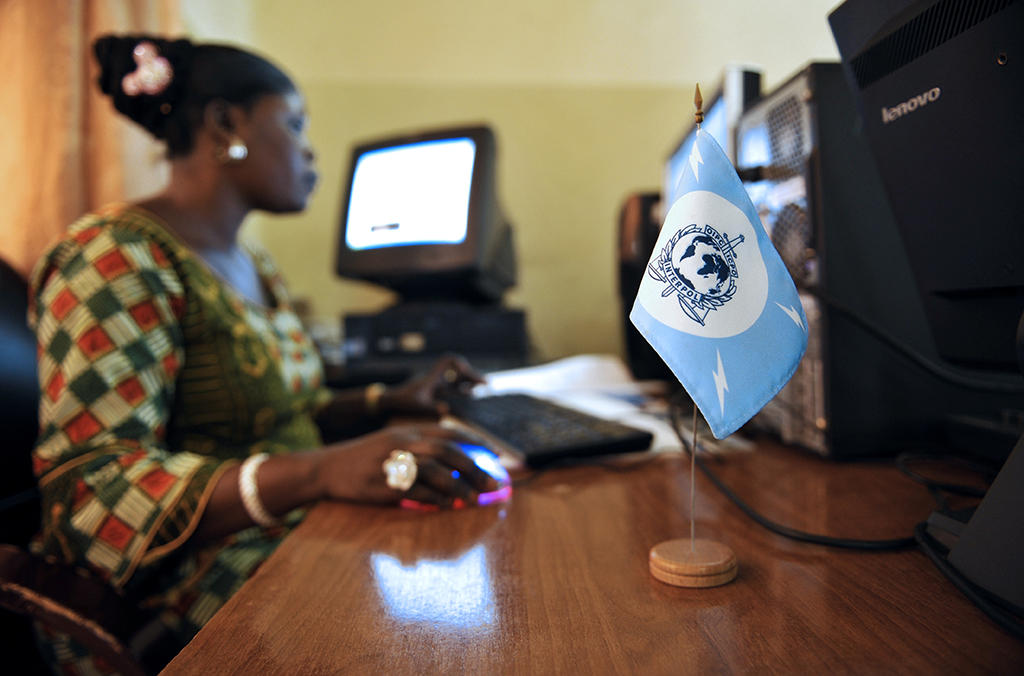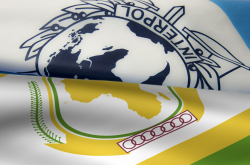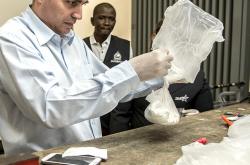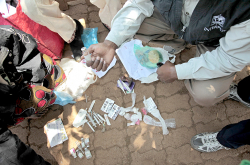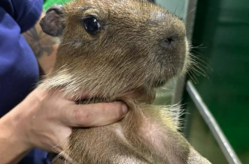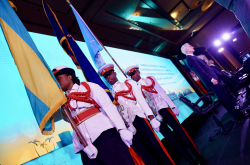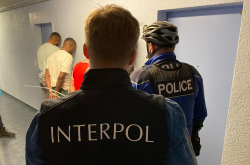ADDIS ABABA, Ethiopia – An INTERPOL report has found crimes are increasingly converging across Africa, underlining how transnational threats cannot be treated in isolation.
Published under the framework of Project ENACT which aims to enhance Africa’s response to transnational organized crime, the report consists of a continental and five regional overviews which highlight the relationships between different types of organized crime across Africa’s regions.
Its findings suggest crime syndicates remain highly connected across borders on the continent and are active in a number of illicit markets.
The report’s publication comes in parallel to a meeting between INTERPOL Chief Jürgen Stock and Moussa Faki Mahamat, Chairperson of the African Union Commission to discuss enhanced cooperation between the two bodies.
Key issues discussed were law enforcement cooperation in 194 member countries in fighting transnational crime and particularly intra-regional flows of terrorists from Boko Haram in West Africa, or Al-Shabaab in East Africa, Al Qaeda and ISIS affiliates in the Maghreb.
“No community, region or country is untouched by the effects of transnational organized crime and terrorism. Their impact is global and their convergence represents an evolving threat which extends beyond Africa,” said INTERPOL Secretary General Jürgen Stock.
With a cooperation agreement with Afripol recently approved at INTERPOL’s General Assembly, the INTERPOL Chief added: “Regional and international police cooperation are vital components in the global security architecture of the future. INTERPOL looks to constantly evolve its capabilities, strategies and partnerships in line with regional priorities and the evolving needs of member countries.”
Some key findings
- Transnational organized crime and violent extremism are increasingly interconnected. Criminals, terrorists and armed insurgents alike are profiting from crime and, through illicit trafficking routes and networks, are moving people and products, creating fault lines from one region to the next across Africa.
- Operating in the shadow of the global economy, traffickers are progressively diversifying and interconnecting their activities including drug trafficking, people smuggling, arms trafficking, wildlife crime, illegal logging, as well as fake medicines. Trafficking in cultural artefacts increasingly involves criminal organizations across the continent.
- Drug trafficking is a growing and cross-cutting threat across Africa, with drug cartels and criminal groups operating illicit networks to connect crime markets across the continent and around the globe. Africa is a consumption, production and transit hub for various illicit drugs, with an estimated 18 tonnes of cocaine originating from South America and destined for Europe transiting through West Africa every year.
- Migrants moving illegally across the continent are vulnerable to human trafficking and high levels of violence, with North Africa a transit hub for migrants seeking to reach Europe. While all aspects of human trafficking, including sexual and labour exploitation, occur on the continent, cases of human trafficking victims auctioned in open markets or falling prey to organ removal scams have been seen detected in some African regions.
- The continent’s rapid technological development, including its e-commerce industry and mobile technologies, has come with a proliferation of cybercrime and illicit online activities. Criminal networks are exploiting the continent’s weak IT infrastructure, with threats including ransomware, new malware and social media scams. Online identity theft is also a concern, with the threat of terrorists purchasing forged documents as part of ‘packages’ sold online to enter other countries.
INTERPOL participates in Project ENACT to assist police in Africa to adopt proactive strategies to combat organized crime threats, facilitate information exchange and enhance their investigative skills.
Project ENACT is the first of its kind to cover the entire African continent to analyse the scale of organized crime and its impact on security, governance and development. The analysis serves to inform decision-makers and strengthen law enforcement cooperation at regional and continental levels.
It is funded by the European Union and implemented by INTERPOL and the Institute for Security Studies, in partnership with the Global Initiative Against Transnational Organized Crime.
INTERPOL opened its Special Representative Office to the African Union in January 2016 to build on the strength of its four Regional Bureaus – Cameroon, Cote d’Ivoire, Kenya and Zimbabwe - and National Central Bureaus across Africa.
الوثائق ذات الصلة بالموضوع






الأخبار ذات الصلة بالموضوع

